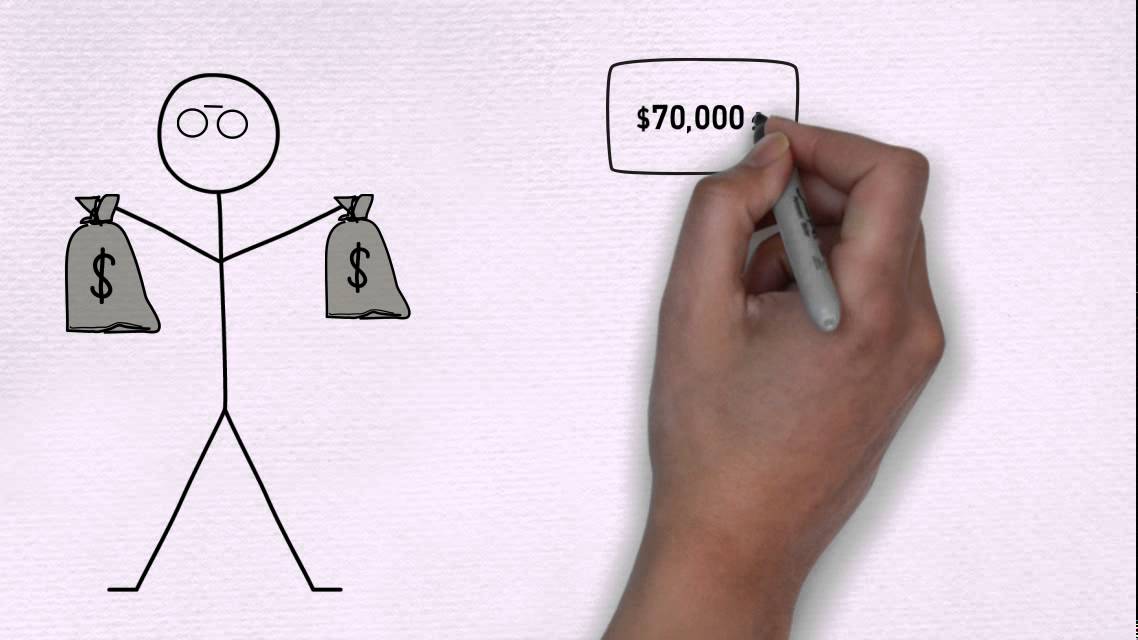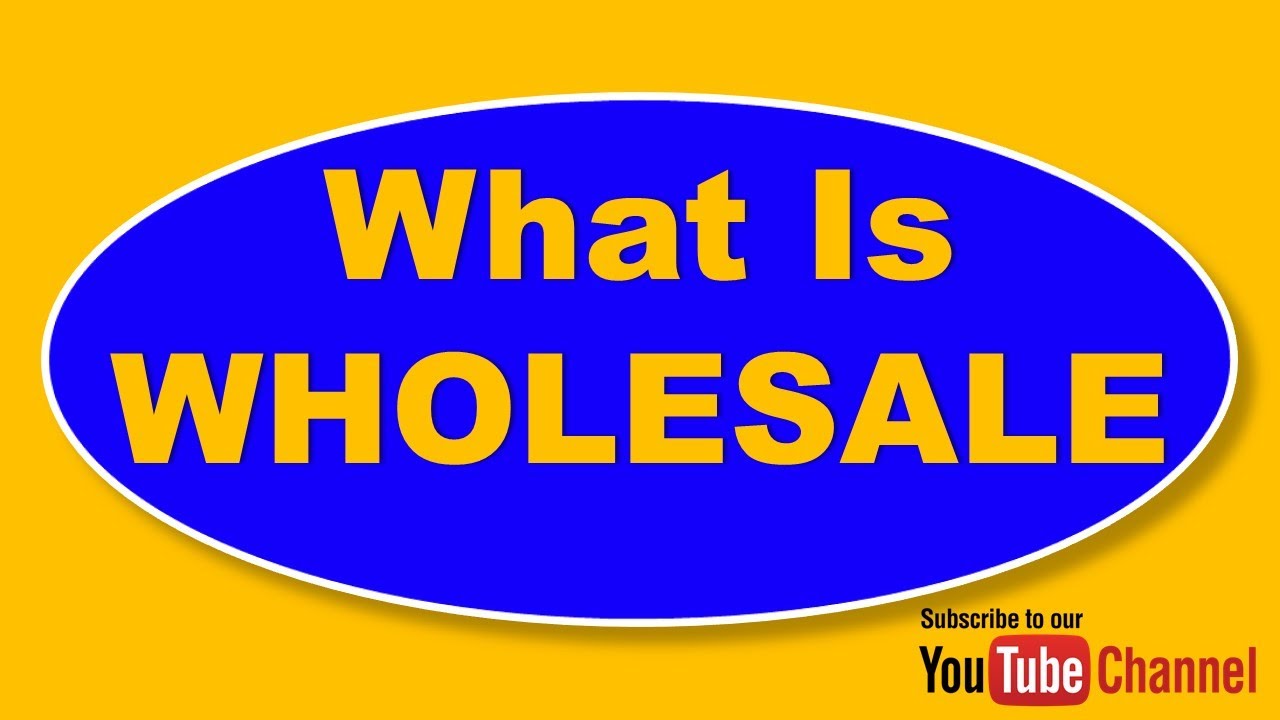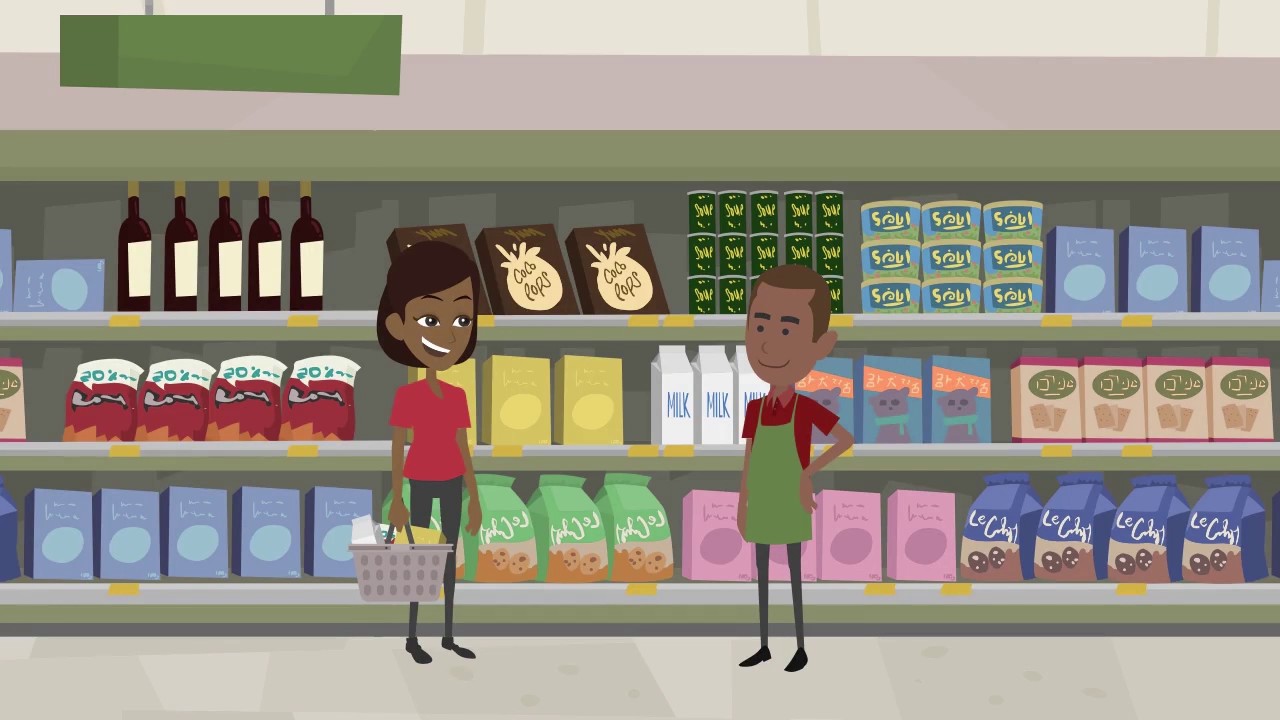Define Wholesale: A Comprehensive Definition
Right off the bat, let’s define wholesale.
Wholesale, in the simplest of terms, is the activity of buying and selling goods in large quantities, which typically results in cheaper prices. These goods are often intended for stores that subsequently sell them to the public. Think of the wholesaler as a crucial link between the manufacturer and retail stores.
Indeed, to comprehend the significance and impact of wholesale today, we must first lay down the foundation: knowing what wholesale is all about. The world of wholesale has constantly evolved since its inception. Its stepping stones can be traced through historical landscapes, dating back to times when trade was primitive, yet laid the ground for modernized & professional trading systems.
Nowadays, wholesale continues to be a significant driving force in economies worldwide.

Discovering the Wholesaler: Role and Responsibilities
So, we’ve defined wholesale. Next up: What is a wholesaler?
A wholesaler, put simply, acts as an intermediary entity in the supply chain. They purchase goods in bulk from manufacturers and sell them in smaller but still large quantities to retailers. Is the light bulb flickering yet? They’re the middle-man, a strategic position in a market economy, coupling the role of distributor and marketer.
Their responsibilities are widespread. Beyond just buying and selling, they manage the supply chain, ensuring a smooth, uninterrupted flow of goods. They negotiate prices, maintain inventories, facilitate transportation, and provide retailers with the solutions necessary to keep the retail stores well-stocked.

| Subject | Description |
|---|---|
| Wholesale | This refers to the activity of buying and selling goods in large quantities, typically to retailers, at a cheaper price. This method allows buyers to get products at a lower cost due to the bulk purchase. |
| Retail | This refers to the process of selling goods directly to consumers. Products are sold individually or in small quantities at higher prices compared to wholesale. |
| Differences Between Retail and Wholesale | 1. Quantity: Wholesalers sell products in large quantities while retailers sell in smaller, individual, or household quantities. 2. Price: Goods are cheaper when bought from a wholesaler due to bulk purchase, while they’re more expensive from retailers due to packaging, marketing, and other overhead costs. 3. Customer: Wholesalers typically sell to businesses and retailers, while retailers sell directly to end consumers. |
| Wholesale Advantages | 1. Purchasing products in bulk at lower prices can lead to higher profit margins when these products are retailed. 2. Wholesalers can mitigate the risk of unsold inventory by distributing products to multiple retailers. |
| Benefits of Retail | 1. Retail allows customers to buy in small quantities. 2. It gives customers a chance to visually inspect products, ask questions, and receive immediate services. 3. Retailers often add value to products through branding, customer service, and providing a convenient shopping experience. |
| Warehouse Clubs | Warehouse clubs offer members the opportunity to buy goods at wholesale prices, bridging the gap between wholesale and retail. They offer products in larger quantities at lower prices compared to traditional retail outlets. |
Understanding the Dynamics of Wholesale
Thus, our journey into what wholesale means deepens.
Wholesalers, operating within the business ecosystem, deal in a multitude of products. They help create a balanced market and play a significant role in influencing pricing. Wholesalers generally purchase products in significant quantities, achieving economies of scale. They then pass these cost efficiencies onto retailers, offering competitive pricing, much different from typical retail pricing.
But there’s more to it. Wholesale surpasses merely buying in bulk and selling it forward. It’s about contract management, risk handling – remember when we mentioned they were a key link?

Unraveling the Wholesale Definition: Beyond the Basics
Let’s dig deeper into the wholesale definition.
You see, modern technology has significantly advanced the realm of wholesaling. Digital platforms and e-commerce have redefined the traditional wholesaling structure. Wholesalers are now adapting to the digital age, leveraging online platforms to streamline operations and broaden their customer reach. We can now witness digital platforms offering wholesale goods directly to consumers, blurring the lines between traditional wholesaling and retailing.
Wholesaling has become an increasingly complex and multi-dimensional domain, with both regional and global impacts on the market at large.

Defining a Wholesaler: A Key Cog in the Economic Wheel
Now, let’s further refine our wholesaler definition.
Wholesalers are more than just middlemen. They’re an active part of the consumer and retail market, affecting both daily navigations and long-term strategies. They influence pricing and availability, contributing to market competition, and ultimately shaping consumer behavior.
To further comprehend the impact of wholesalers, consider this: they provide a platform that encourages scalability. This unique structure allows wholesalers to function at both regional and global capacities simultaneously, significantly impacting the economic infrastructure.

Future of Wholesale: Predictions and Trends
If we’ve learned anything so far, it’s that wholesale isn’t static. Tomorrow’s wholesale market will look different from today’s. Innovations in technology, increased attention to sustainability, socioeconomic changes – they’re all transforming the fabric of wholesaling.
Emerging trends suggest a growing role for e-wholesale, where traditional wholesalers are expected to adopt or merge with online platforms, a response to an increasingly digitized global marketplace.
Sustainability is taking center stage, too, as businesses are acquiring a growing sensitivity towards environmentally-friendly operations and social responsibility. Wholesalers will likely need to adapt to meet these expectations.

Wrapping up the Wholesale World: A Complete Guide
Phew, we’ve sure covered a lot. Let’s rewind our understanding of wholesale.
Comparing wholesale with other methods of commerce, it’s evident that while retail might be more recognizable to the general public, wholesale is the hidden engine churning behind the scenes of global trade. It’s time we moved past the misconceptions and understood that wholesale is not just about buying in bulk. It’s a significant piece of the economic pie.
Here’s a practical application of wholesale: real estate. Professional wholesalers find undervalued properties, tie them up under a wholesale real estate contract, and then sell that contract to another buyer – often a house flipper. You can learn more about this strategy on the aptly named Wholesaling Houses page.
Wholesalers also play an active role in modern strategies like flip real estate Contracts. This method involves transferring a contract for purchasing a property to another buyer, without the wholesaler buying it themselves.
Fascinating. Isn’t it?
Final Thoughts: Applying Our Understanding of Wholesale
Running a business and striving for growth? Wholesale might be your springboard. It offers opportunities for scaling up and keeping costs competitive, given the economies of scale.
More importantly, wholesale – and how we’ve come to define wholesale – is intricately linked to the broader economic fabric. It affects and is affected by global shifts in technology, sustainability, and socioeconomic factors.
In this context, understanding wholesale and its dynamics is invaluable. You’d be surprised – becoming a better business leader might even help you become a better girlfriend or win recognition like Malcolm Jamal warner. It’s all about understanding relationships and managing complex systems – in business and in life.
And there, you have it! A comprehensive, beginner-friendly guide to understanding and defining wholesale. Let’s roll up our sleeves and dive into the bulk of it – innovative, exciting, and rewarding. The wholesale world awaits.
What does it mean when something is wholesale?
When we say something is “wholesale,” we have a tendency to think of bulk quantities, don’t we? You’re not far off the mark. In simple terms, purchasing “wholesale” means acquiring goods in large volumes straight from manufacturers or distributors at a lower cost.
What is wholesale vs retail?
So, “wholesale vs retail,” what’s the drill, you ask? Well, they’re different stages of distribution. Wholesale involves selling goods in large heaps, often to retailers, while retail involves selling individual units directly to consumers. It’s like watching the journey of a sandwich from farm to table!
What are the three types of wholesale?
Now, when we peek into the ‘wholesale world,’ we stumble upon three types of wholesalers: merchant wholesalers, brokers and agents, and manufacturers’ and retailers’ branches and offices. Each plays a distinctive role in weaving the intricate web of supply and demand.
Does wholesale mean cheap?
Wholesale does often mean cheap, but not in terms of quality, mind you! It’s cheap mainly because you’re buying in bulk and directly from manufacturers – cutting out that pesky middleman, you get to save a neat buck or two.
Does wholesale mean you can resell?
Hey, don’t get ahead of yourself! Although buying wholesale generally implies the intention to resell the purchased items, it doesn’t always mean you’re allowed to. It depends on the vendor’s terms and possible licensing or legal restrictions.
Is Amazon wholesale or retail?
Ah, our online paradise, Amazon! It primarily operates as a retail platform, but it also provides a platform for wholesalers through its Amazon Marketplace. An impressive ‘two-in-one’ if you ask me!
Is Walmart wholesale or retail?
Now, what about Walmart, is it wholesale or retail? Primarily, it’s a retail juggernaut, but it also has a wholesale segment in the form of Sam’s Club. They really know how to keep their bases covered!
Who is the biggest wholesaler in the US?
When it comes to the title match of ‘Biggest Wholesaler in the US’, the crown, believe it or not, goes to McKesson Corporation. This healthcare giant has a massive wholesale operation, delivering pharmaceuticals and medical products nationwide.
What makes you a wholesaler?
To call yourself a wholesaler means you’re the friendly bridge between manufacturers and retailers. You buy products in bulk from manufacturers and sell to businesses who’ll get them into consumers’ hands.
What is an example of wholesale?
An example of wholesale? Picture this: a furniture manufacturer sells 50 tables to a furniture store in one go. That’s a perfect snapshot!
What is the most common type of wholesaler?
As for the most common type of wholesaler, it’s the good old ‘merchant wholesaler.’ They buy and take title to goods, store them, then resell to businesses.
Is it better to buy wholesale?
Deciding whether to buy wholesale may seem a tough nut to crack, but it’s usually better if you’re purchasing in large quantities or running a business. It strips away the extra costs and can save you some pretty pennies.
What is an example of wholesale?
Ever seen a restaurant owner buy 100 pounds of potatoes directly from a farm? That’s wholesale for you! They’re getting the goods directly, sans middlemen, ready to turn those taters into tasty fries!
Is wholesale full price?
Sorry to burst your bubble but wholesale isn’t normally full price. It’s generally discounted because you’re buying in bulk quantities and bypassing the retail markup.
Does wholesale mean to the public?
Lastly, the term ‘wholesale’ doesn’t necessarily signify a sale to the public. Often, wholesalers sell to businesses with the intent for resale. However, some wholesalers, known as ‘wholesale clubs,’ do sell directly to consumers – membership usually required. Hope these answers clear the fog!


